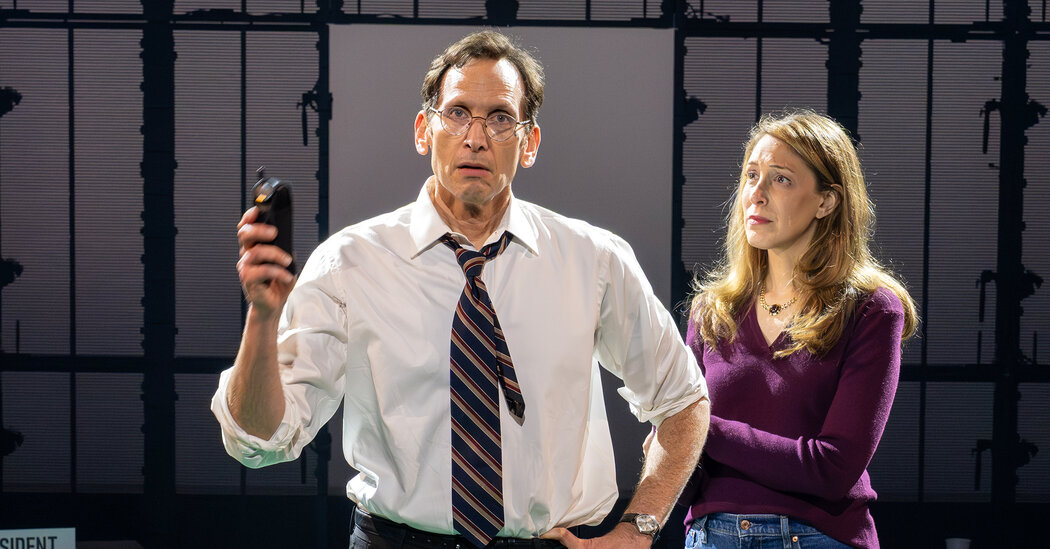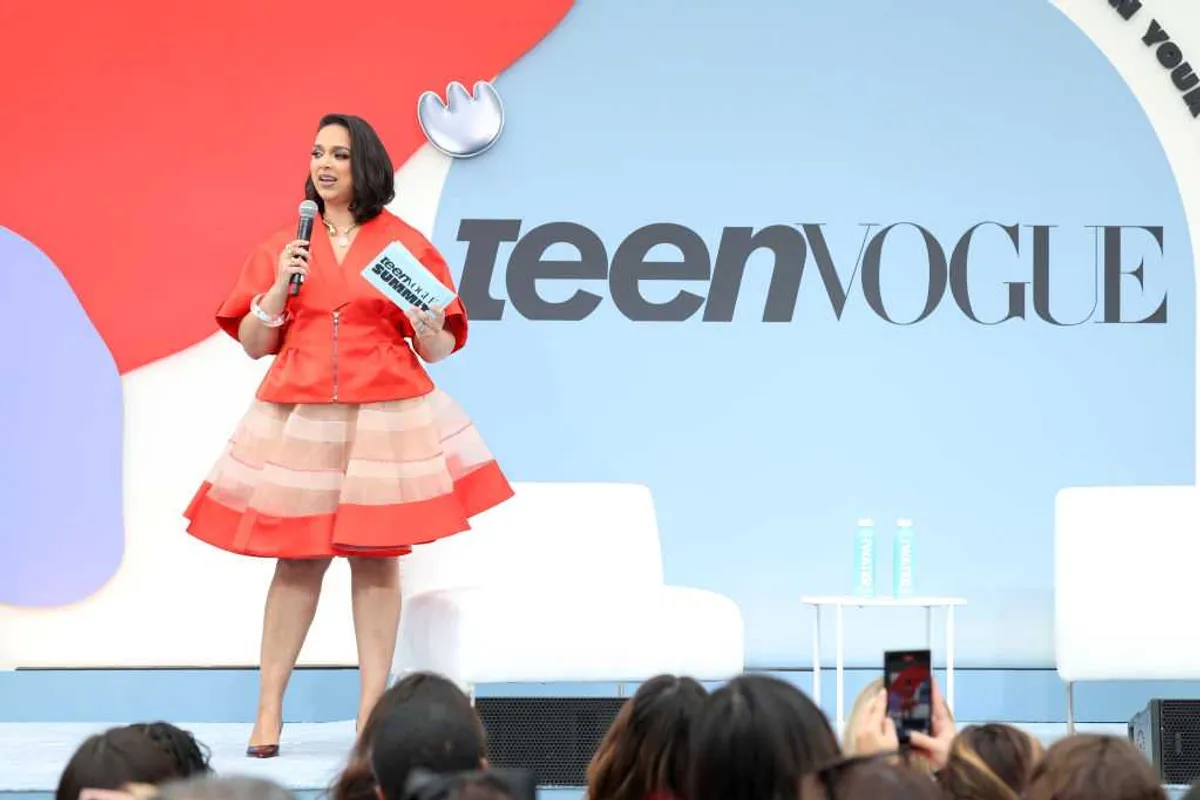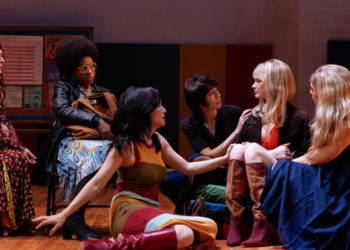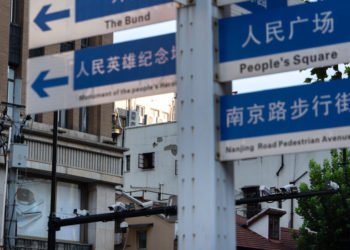Once in a while, as you’re watching a play, a character says something so fabulously quotable that you just know it’s the T-shirt line — the snippet of dialogue that’s emblazoned on the merch. Sure enough, in “Kyoto” it’s a burst of nostalgia from the opening monologue.
“The 1990s were freakin’ glorious,” the narrator says, contrasting that decade with our own fraught, tumultuous time. At Lincoln Center Theater’s Mitzi E. Newhouse Theater, that observation gets a laugh from the crowd gathered for this drama about the negotiations leading up to the 1997 Kyoto Protocol, a global treaty aimed at combating climate change.
The narrator, a Washington oil lobbyist named Don Pearlman, doesn’t really believe in that nostalgia, though. Neither does the show, which opened on Monday night, even if it wants to point to the Kyoto consensus as a source of hope for a world badly in need of it.
But no matter how much of a nerd you are for international cooperation and eco activism, this play by Joe Murphy and Joe Robertson labors in vain to fashion art from meetings mired in the language of bureaucratic minutiae. Such as: “Mr. Chairman, the conditional tense is no longer sufficient for us.” Or, ominously, deep in Act II: “We will begin with the most contentious Article, Article 3, and then move from 1 to 28 sequentially.”
The show is a curious miscalculation from Murphy, Robertson and their directors, Stephen Daldry and Justin Martin, all of whom had a hit with “The Jungle,” their immersive play about migrants in a refugee camp in Calais, France. And on paper, this production seems like a logical match for Lincoln Center Theater, where prestige drama fans flocked to see J.T. Rogers’s Tony Award-winning “Oslo,” about the discussions that resulted in the 1993 Oslo peace accords.
The post In ‘Kyoto,’ Seeking to Save the Earth but Veering Off Course appeared first on New York Times.




